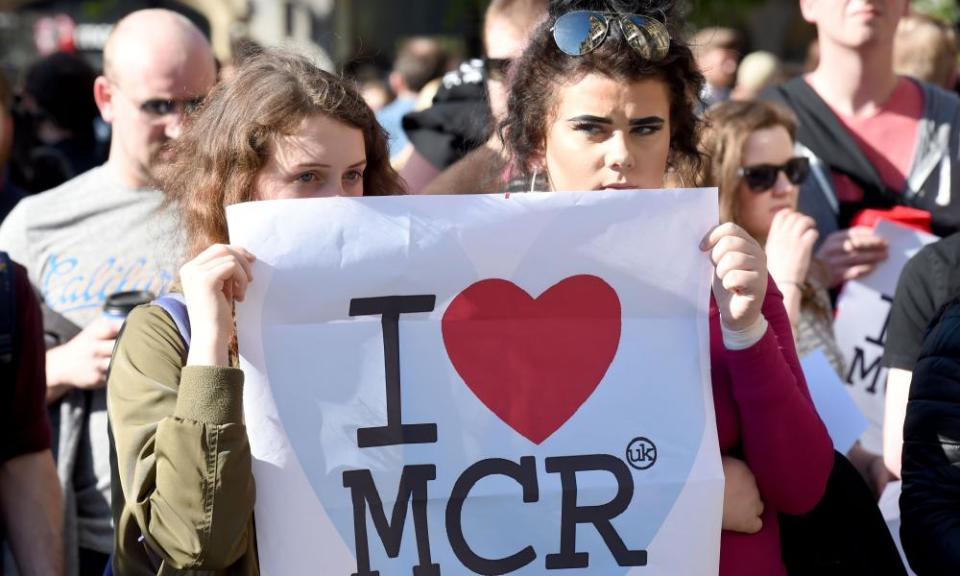Manchester is a city of live music and good times. That’s why this hurts so much | Carol Birch

Manchester was never harmless. Nowhere is. Creepy men hung around Piccadilly Gardens when I was growing up, the Moors Murderers prowled the streets near my school and it was common knowledge in my classroom that Jimmy Savile was luring little girls into his dressing room at the Dickenson Road studios where Top of the Pops was made before it moved to London.
But the entertainment scene was always great. My father, a musician, practically lived in its jazz clubs, and from the age of 13 my friends and I were going to concerts on our own. We saw the Beatles, the Stones, Dylan, Hendrix. At the old Manchester Sports Guild, a stone’s throw from where the Manchester Arena now stands, there was jazz downstairs and folk upstairs. I saw Jesse Fuller there, Martin Carthy, Mississippi Fred McDowell. And now when I look back I see the town at night as safe and fun and exciting, the dark edge simply that – an edge to keep away from.
I feel so deeply sad and angry that girls (and anyone else) may not be safe doing what I did. My fellow Manc, Morrissey, is also very angry, as was obvious to anyone who read his illogical and indiscriminate Facebook post following last week’s attack at the Manchester Arena, in which 22 people were killed.
I disagree with him on most things, but I understand his anger, and it interested me to notice that, on parts of social media at least, more vitriol seemed to have been deposited on his confused head than on that of the bomber. Over the past week so much loathing has been directed towards this silly, sulky man, clinging to his lost adolescence and floundering in the dregs of his contrarian genius.
A friend suggested this is because Islamic State and their ilk are so far beyond the pale that being angry with them was like being angry at the devil – pointless. Whereas Morrissey is just a silly old human and meant to abide by different rules.
So we meet anger with anger, and hate with hate. Some pretend they’re immune but very few are. Whether directed at the bomber, the government, the extreme right or left, or misguided ranters like Morrissey, anger is the zeitgeist. And if we’re not angry when children are blown up, whether in Manchester or Syria, perhaps we should be.
But that doesn’t mean it’s OK to hate. In the words of Johnny Rotten, “anger is an energy”, but hate corrodes. Hate won’t solve anything, and hating the haters perpetuates it. If we should try to understand the mind of the terrorist – and I believe we should – why should we be less inclined to try to understand the reactions of the frightened, outraged, angry ranters? If we don’t, we’re just joining in with the division and intolerance.
After hearing of so many horrors in so many parts of the world over recent years, I was foolishly surprised at how profoundly different the response is when it happens in your own home town. It shouldn’t be, but it is. Attachment to roots runs deeper than I thought. I simply know that because of happy nights at the Apollo and the Palace and the Free Trade Hall in the 60s; because of my memory of my friend’s mum waiting for us in the cold outside; because I clearly recall the ferrying to and from the Manchester Arena of my own children, this particular atrocity has hit me harder than the rest. So I think I understand why Morrissey is so angry. He’s grieving.

 Yahoo News
Yahoo News 